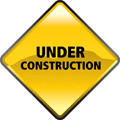Today I’d like to talk a bit about the Short-Term Impact and Long-Term impact of the Coronavirus on the Housing and Rental Markets. Pay attention as I’m going to give you some insight and key takeaways on this episode.
I’ll have more to add in upcoming episodes, so if you haven’t already, now is a great time to click that subscribe button so you don’t miss out on another episode of the Passive Real Estate Investing podcast.
Keep in mind that this is evolving day-by-day, and although I’m not a fan of the main-stream media, it is my opinion that they are doing more harm than good by adding fuel to the fire of concern to those paying attention to them.

The coronavirus pandemic has already caused a decline in the stock market, though that was more out of fear than anything else. However, we can look back to recent historical events like the swine flu, the SARS epidemic, MERS and other aggressive flu strains to make reasonable predictions of the impact of the covid-19 pandemic on the housing market. We can also use history to predict the impact of unusual responses to this pandemic, such as Italy suspending mortgage and rent payments.
Historically speaking, the housing market is relatively stable during market disruptions like a recession. Since 1980, there have been five official recessions in the United States. In all but the 2008 financial crisis, inflation-adjusted home prices only declined an average of 2.7 percent from the month before the recession began to the final month of the recession.
There’s a good chance the market will remain hot for some, but cool for others. The coronavirus is leading to fewer homebuyers searching in the marketplace, as well as some listings being delayed. In the latest flash survey, 11% of Realtors indicated a reduction in buyer traffic and 7% are reporting lower seller traffic when asked directly about the coronavirus impact on the market. The fear of the coronavirus outbreak is definitely giving pause to some buyers and sellers. But in this low inventory seller’s market, even as some potential buyers drop out of the market, there are others who remain eager to get a home under contract while rates are so low.
Local real estate markets may act as a buffer against potentially larger declines in the financial markets. The recent turbulence in the stock market has already impacted the household wealth of many people to the tune of billions of dollars. This could reduce the demand for luxury homes. However, with fewer buyers for luxury real estate, there could be opportunities for steep price discounts for buyers who choose to remain in the market for high-end properties.
The weaker financial markets can affect stability in the real estate markets. However, times like these do provide an opportunity for investors with money and the willingness to ignore the short-term fluctuations and talking heads on the main-stream media, to scoop up properties that may not appreciate as quickly as when the financial markets are running strong.
KEY TAKEAWAYS:
- Smart investors often take advantage of these opportunities, while some would-be investors may finally pull the trigger on purchasing that first or second investment property.
- Sometimes, you have to take advantage of these market disruptions to see that many investors will pump the brakes on investing out of fear and other illogical emotional reasons while others see the opportunity of having access to more real estate inventory, possibly better pricing, and still historically low-interest rates.
Before this coronavirus threatened the global economy, the state of the U.S. real estate market was great. The median home price nationwide hit a record high of just over 300,000 dollars. This is nearly seven percent higher than in 2019. The number of home sales was up nearly ten percent year over year. According to Redfin, a real estate brokerage, January 2020 was a reliable predictor of the strength of the housing market for the entire year. Their agents were reporting intense competition among homebuyers. Demand was outpacing the supply like never before. January home prices were up 7% year over year, and home sales were up 7% as well.
As the Coronavirus disrupts supply chains, the cost of construction materials like lumber, aluminum or steel may increase over the short run or become limited, which will increase the cost of construction and potentially reduce the speed of new residential development below its already dull pace.
The Federal Reserve recently issued an emergency 50 basis point cut to their target interest rates, and history suggests that they may be open to future reductions. This should help to reduce the cost of borrowing and make housing more affordable over the short term, which should help to offset some of the negative impacts on housing demand associated with rising uncertainty. The fall in interest rates may induce some potential buyers to take advantage of the better conditions in affordability. However, looking at the larger picture of the economy, it is too early to ascertain whether lower interest rates can overcome the current economic and health concerns.
Table of Contents
Trump Declared a State of Emergency Due To The Coronavirus
On March 13, 2020, President Trump evoked the National Emergency Act and Stafford Act to declare a national emergency. This allowed him to quickly get fifty billion dollars to help fight the coronavirus epidemic in the United States. This declaration came on the heels of halting travel to Europe and weeks after Trump limited travel to Asia. The short term impact of the emergency declaration is that it will pump some money into a slowing economy. For example, large businesses have agreed to pay sick leave to those who are in quarantine.
This will help them to receive income to pay their bills, and it doesn’t require them to wait for weeks to qualify for unemployment. However, the rule doesn’t apply to firms with fewer than 50 people. This plus the economic slowdown could cause many small businesses to close, whether due to decreased income or people not able to continue working for them. The news that de facto economic stimulus was on the way led to the stock market soaring. A lot of what is dubbed the Corona Crash is a hysterical selloff, not a reasonable response to something like Apple’s losses because they can’t get parts for the assembly line.
Italy suspended both rent and mortgage payments. There are already people in the United States calling for a pause on rent and mortgage payments, and some of them are citing Trump’s example of pausing interest payments on student loans.
What happens if mortgage and rent payments are put on hold for a few months? Banks and institutional investors may suffer a cash crunch similar to the one seen during the Obama administration. And the solution used at that time may be called upon again; another bailout for the banks and large investment houses. No bailouts for main street property investors.
Will that happen? I doubt it. It’s too early to tell anyway, and most mortgage loans today have been placed with well-qualified borrowers the average credit scores of 720 or more.
KEY TAKEAWAY: Don’t wait for a housing market correction like we had in 2008. It’s not in the cards.
The Short-Term Impact of Coronavirus on Rental Market
If you own a short term vacation rental, the odds are that your rental income is going to fall. Large events around the country are being canceled. This ranges from sporting events to concerts. People are increasingly stuck at home, and few are willing to travel for anything. This is going to empty out hotels and short term rentals like Airbnb.
We can expect many of those short-term rental property investors to see a drop in revenue for the next few months because it will take that long for the tourism industry to recover. People who scheduled cruises often planned those six months ago, while those who had to cancel at the last minute may not get their money back. And the latter group may not be able to afford to plan another vacation. It’s terrible when you have to cancel a well-planned vacation due to such unforeseen circumstances.
With the potential for summer vacation plans being canceled, owners of Airbnb, and other short term rental properties face additional cancellations and a lot of uncertainty. Much of the income derived to pay off debt on those investment properties come in during the summer, and if proprieties remained vacant, their mortgage payments could be affected.
That has always been one of my major concerns with short-term rentals. But if you own a traditional rental property occupied by long-term tenants, your property’s value remains stable and the rental income will continue to come in.
For long-term rental property owners, many jurisdictions are banning no-fault evictions or even all evictions during this “crisis”. That means you may not be able to evict someone who hasn’t been paying their rent for another few months. In some areas, late fees and penalties for late payment of rent are also on hold. Now you risk having employed but non-paying tenants take advantage of the situation. Just a few days ago the New York lawmakers moved to ban evictions during the coronavirus outbreak. The lawmakers have introduced legislation to enact a moratorium on evictions and foreclosures during the coronavirus epidemic in New York.
The bureaucrats in San Jose, California are also enacting a moratorium of at least 30 days for those who can clearly document their inability to pay rent due to a coronavirus-related loss of income. San Jose will evaluate extending the eviction moratorium in a month after it goes into effect. This has shocked a lot of rental property owners who are worried that they would be mandated to shoulder the entire financial burden of a tenant that will not pay the rent because of the impact of covid-19 pandemic. The officials of San Francisco city are also considering a similar moratorium on the evictions of renters, as well as new measures to the city’s small businesses and low-wage earners.
Police in Miami, Florida announced on Thursday that officers will not assist with evictions proceeding during the emergency declared by Mayor Carlos Gimenez. The action means officers won’t assist rental property owners in removing tenants or serving court papers. All evictions have been frozen until further notice by the local government. Not only that, but on Friday, the Miami-Dade county’s Water and Sewer Department also notified county commissioners it had halted both service cut-offs for no unpaid bills and was suspending late fees during the coronavirus emergency.
In the short-term, this quarantine means far fewer property showings. People can still shop online listings, but they are unlikely to show up, much less sign the purchase agreements or new leases. However, that activity will pick up once the quarantine fears dissipate.
Another concern is the construction industry. Demand for housing remains strong, but people choosing to stay home out of fear of infection could deprive the housing market of desperately needed labor. It is unclear if disruptions in trade are going to cause material shortages. This could exacerbate the housing shortage that has affected many housing markets across the country since inventory levels had fallen by more than 15 percent nationally.
KEY TAKEAWAYS:
Vacancy rates aren’t going to change much because very few people are going to be moving in the short term. This is good news for current and future real estate investors.
Demand for housing will continue to increase due to a slow down in new construction and new housing formations.
The Long-Term Impact of Coronavirus on the Housing Market
The short-term impact of the coronavirus is that home sales may be reduced by around 10%. 11% of Realtors are already seeing a reduction in buyer traffic and another 7% are reporting lower seller traffic, according to a recent flash survey conducted by the National Association of Realtors.
But what is the likely long term effect of the coronavirus on the real estate market? The Coronavirus has sparked fear that the housing market could face a long-term impact that has caused uncertainty among homebuyers. This will depend on the severity of any associated economic downturn.
A long-term economic problem could be dangerous for housing if a larger, statistically significant number of people lose their jobs and income.
If the economy goes into a recession, rents, in general, may stop rising as fast as they have over the last 5 to 8 years. And home prices may remain flat or creep up slower than they have since 2012.
There are those who were afraid the US was poised for a real estate correction since home prices in some markets are as high as they were before the 2008 housing crash. In overheated markets like San Francisco and New York City, they were already starting to decline and are now fearing a large correction.
In NYC, it appears that prospective buyers are separating into two camps: those who are steering clear of the market, fearing contagion at showings, and people who are seizing the opportunity to nab property while mortgage interest rates are near historic lows.
Conclusion: Overall Impact of Coronavirus
It’s clear that the Coronavirus will have an impact on the economy and the housing market in 2020, but it is also clear that it is NOT a time to panic.
According to the California Association of REALTORS®, the eventual rebound from this coronavirus pandemic will take longer than it did with SARS in 2000. The effect of lower rates may offset some of the declines in the housing markets and California would still achieve a modest improvement in both home sales and prices in the upcoming months. The predictions of economic growth by C.A.R. and others have been revised down, but only by a 10s of basis points. A very small amount.
It’s too early to predict what will happen. We already know the outbreak in Wuhan, China has caused shortages and delays in the supply of consumer goods and reductions in global travel. The coronavirus has already affected the stock market, travel, and the real estate sector. Whether it will permanently cause a change in how we do business is yet to be seen.
The economic impact of the pandemic COVID-19 is greater than that of SARS and other Asian flu epidemics. Self or government-mandated quarantine measures will see significantly lower consumer spending, which will impact the economy.
However, there’s far more hysteria about this than the H1N1 flu strain that killed an estimated 200,000. It will probably trigger a correction in the housing and real estate market that was due to happen, but it isn’t the end of the world or the economy.
My personal opinion is that the media will try to pump as much fear and “breaking news” as they can over the next 2 to 4 weeks as that makes for good television, strong viewership and high ratings which in turn sells more advertising on their networks.
Market fears will begin to subside after that as a sense of normalcy works its way back into the economy and equity markets.
KEY TAKEAWAYS:
- The coronavirus will have a positive impact on the U.S. real estate market if interest rates remain low and the return to normalcy is only a few months away. And residential real estate is likely to fare far better than the commercial real estate sector.
- Sometimes, you have to take advantage of these market disruptions to see that many investors will pump the brakes on investing out of fear and other illogical emotional reasons, while others see the opportunity of having access to more real estate inventory, possibly better pricing, and still historically low-interest rates.
So hang in there and don’t let your investment strategy and goals get derailed by the media hype, and emotional hysteria you see today. Stay focused on opportunities and let the dust settle as it always does.
Again, now is a great time to click that subscribe button so you don’t miss out on another episode of the Passive Real Estate Investing podcast.
References:
- Short term impact
https://time.com/5740290/trade-war-lumber-hardwood-environment-forests/
https://www.cnn.com/2020/02/08/business/coronavirus-global-economy/index.html
https://sanjosespotlight.com/as-coronavirus-cases-increase-san-jose-mayor-announces-plan-to-protect-renters/
https://www.dailybreeze.com/2019/11/06/redondo-beach-set-to-ban-no-fault-evictions-leading-up-to-state-law/
http://theconversation.com/what-we-know-suggests-the-economic-impact-of-wuhan-coronavirus-will-be-limited-130598 - Historic events
https://www.livescience.com/41539-2009-swine-flu-death-toll-higher.html - Potential impact of policy changes
https://www.bbc.com/news/business-51814481
https://www.thestranger.com/slog/2020/03/11/43119009/the-us-should-suspend-mortgage-and-rent-payments-during-virus-crisis
https://www.cnbc.com/2020/03/13/what-to-do-now-that-trump-suspended-student-loan-interest-payments.html - State of US market
- https://www.redfin.com/blog/coronavirus-housing-market-advice/
https://www.realtor.com/research/february-2020-data/
https://www.dallasnews.com/business/real-estate/2020/03/12/home-market-could-take-a-hit-from-economic-headwinds/
https://www.jpmorgan.com/global/research/us-housing-risk
https://www.forbes.com/sites/billconerly/2020/03/07/us-housing-market-in-balance/#22f196ef584b - State of emergency
https://abcnews.go.com/Politics/trump-declares-national-emergency-responding-coronavirus-heres-means/story?id=69586419
https://www.usatoday.com/story/news/politics/2020/03/13/coronavirus-bill-house-nears-approval-free-tests-paid-sick-leave/5039259002/
https://www.forbes.com/sites/chuckjones/2020/03/13/beware-of-a-dead-cat-bounce/#4715fde72324




